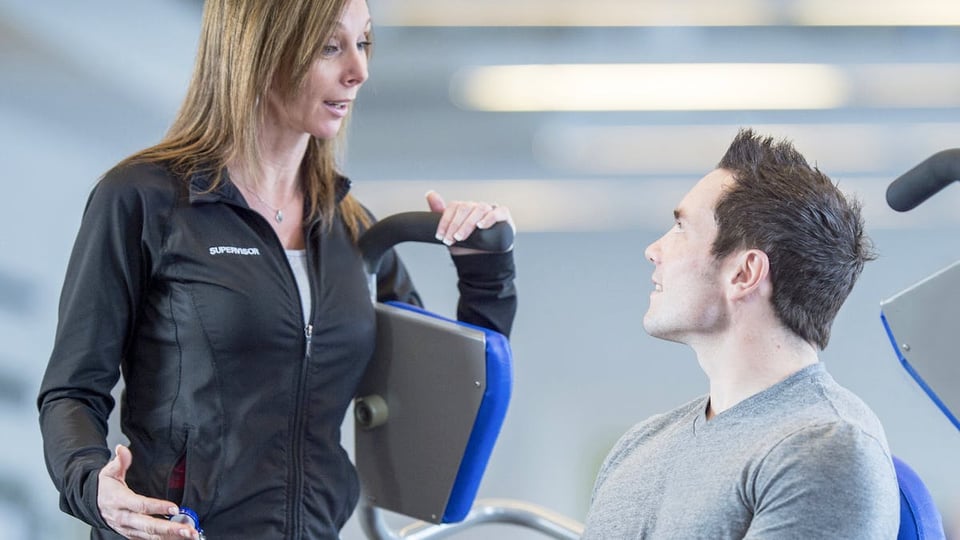Spinal Cord Injury Rehab
Ryan Daywalt, PT, MPT
Includes all course content in digital format
Prerequisites Required
Description
Spinal cord injuries affect nearly 18,000 new Americans each year. At any one time, nearly 300,000 people in the United States are living with Spinal Cord Injury (SCI). With increasingly high first year mortality rates, and a steadily decreasing length of stay in both acute care and rehab settings, it is our responsibility as healthcare providers to educate ourselves in order to more effectively treat this population. Physical and occupational therapists have the potential to make the single, biggest impact on the functional outcomes of these patients, drastically improving both quality and quantity of life post-injury.
This one-day course will equip clinicians with the skills needed to better understand the diagnosis and accompanying comorbidities patients with SCI may experience. Course participants will gain valuable hands-on*experience with transfer techniques, interventional strategies, and wheelchair skills. Two separate lab* sessions will provide attendees the opportunity to practice techniques on one another. Following this course, therapists will immediately be able to integrate the techniques and ideas learned to more effectively meet the needs of their patients with SCI.
*Hands on lab will be modified for Web based delivery formats into recorded demonstrations
Highlights
- Immediately improve your knowledge of spinal cord injury management and treatment with early interventional strategies you can put into use tomorrow!
- Best practices for lifts, transfer techniques, and wheelchair mobility
- Interventional strategies to help patients regain function and independence
- Systematic approach to learning ASIA scoring to help identify functional and sensory deficits
- Interactive hands-on labs to practice transfer techniques and wheelchair skills
Learning Objectives
- Identify spinal cord anatomy and types of injury classifications.
- Describe common medical complications/limitations experienced by persons with spinal cord injury.
- Demonstrate effective techniques for transferring patients with varying levels of involvement.
- Practice teaching interventional progressions in a lab setting, from various positions.
- Participate in skills sessions with manual wheelchairs, including negotiating a curb and teaching wheelies.
- Discuss common misconceptions regarding depression, coping, and sexuality.
- Utilize a case study, determining neuro classification, appropriate transfers, wheelchair prescription, and ADL goals.
Course Content
| Spinal Cord Injury Rehab | SCORM Package | ||
| Next Steps | Module |
- Current Research and Statistics for Spinal Cord Injuries
- Anatomy
- Classifications
- Demographics/statistics
- ASIA scoring
- Medical Considerations
- Autonomic dysreflexia
- Circulation
- Neuromuscular involvement
- Bowel and bladder
- Pulmonary
- Sensation/skin
- Hands-On Lab
- Best Practices for Lifts and Transfers
- Dependent transfers
- Using slide board/slide sheet
- Sit to sit transfer
- Floor to chair transfer
- Functional Mobility Interventions
- Supported short sit
- Supine to sit
- Sit to supine - LE management
- Quadruped
- Tall kneeling
- Hands-On Lab
- Optimizing Wheelchair Seating and Mobility
- Teaching wheelies
- Skills
- Prescription
- Power vs manual
- Implications of Challenging Behaviors and Depression
- Depression
- Substance abuse
- Sexual identity
- Case Study
- Setting and Implementing Functional Goals
- Summary H&P review
- Asia form completion
- Identify appropriate transfer
- Identify possible ADL Goals
- Wheelchair prescription
*Hands on lab will be modified for Web based delivery formats into recorded demonstrations
DISCLOSURES
FINANCIAL: Ryan Daywalt is compensated by Summit as an instructor.
NONFINANCIAL: Ryan Daywalt has no nonfinancial relationships to disclose.
Click here to check accreditation for this course.